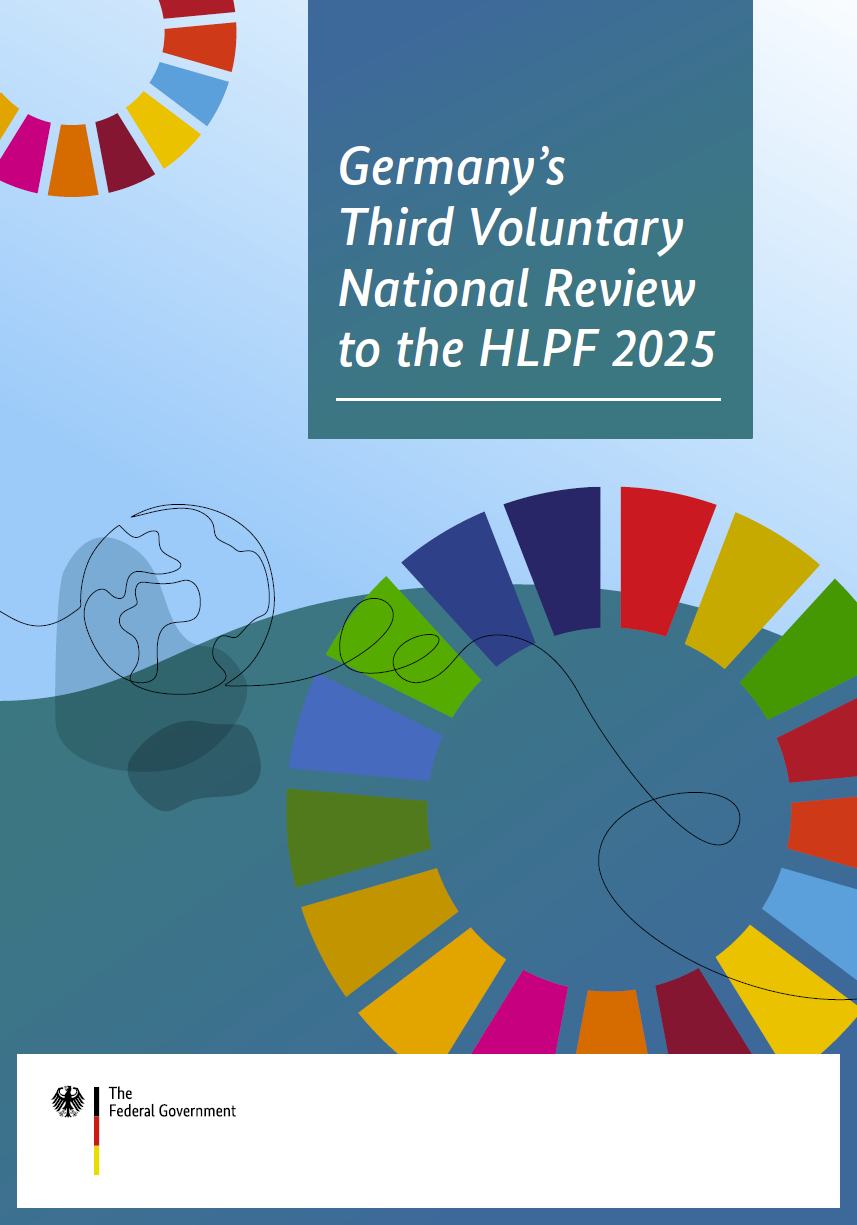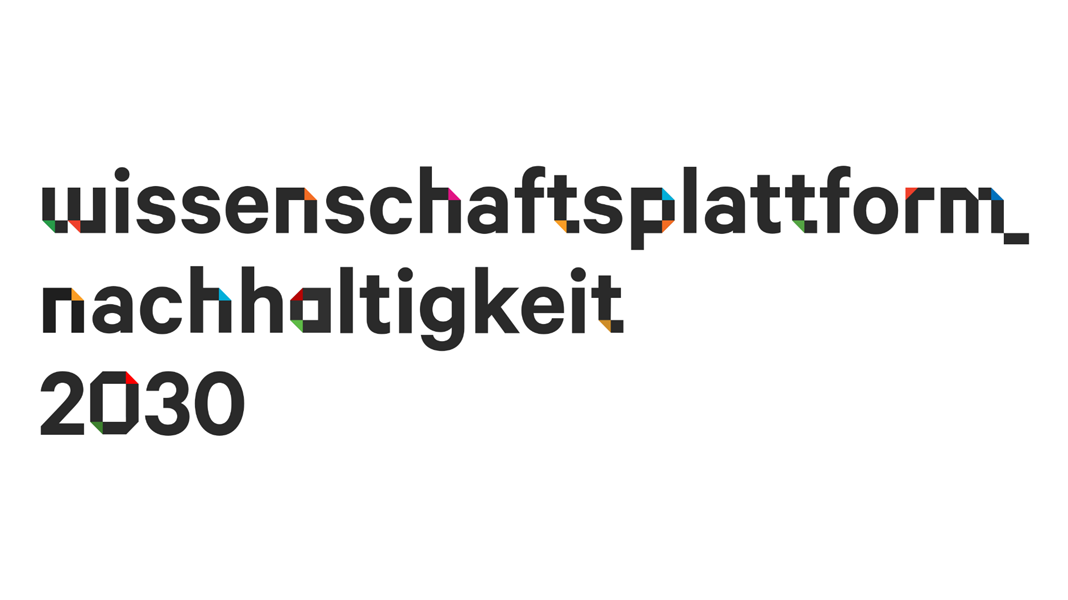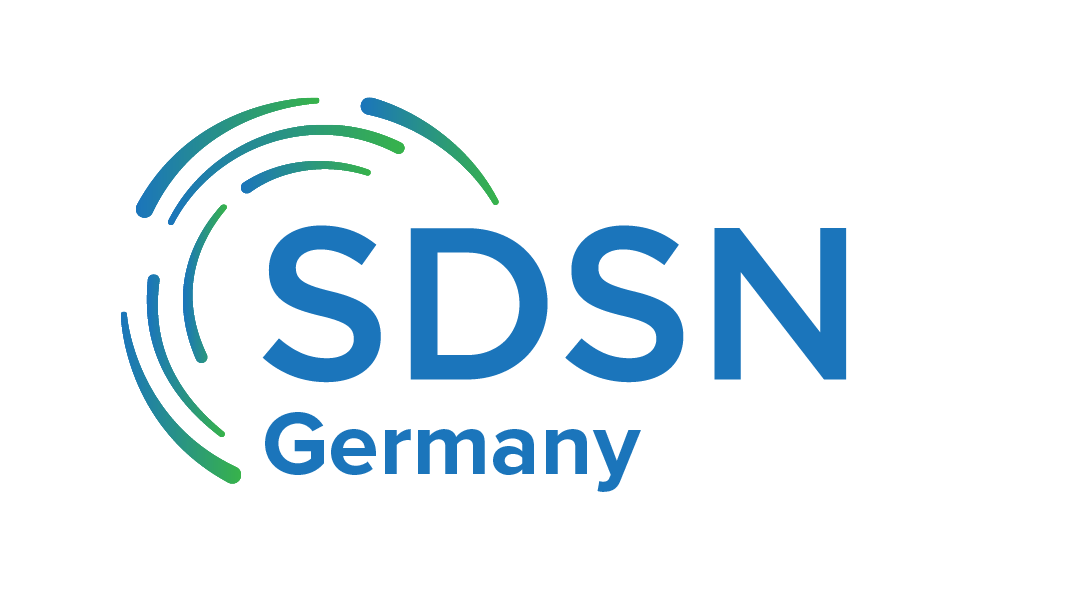VNR 2025 Joint contribution by Science Platform Sustainability 2030 (wpn2030) and SDSN Germany
The 2023 SDG progress report (External link) recommends the more comprehensive integration of science and academia. Among other things, this should help identify integrated policies and measures that can accelerate the implementation of the SDGs. The second German Voluntary National Review (VNR) (External link) also identified as a “lesson learned” the need to better integrate the expertise of non-state actors into future reporting processes. Therefore, in December 2024, the Dialogue of the Scientific Advisory Boards was involved in a specific session as part of the much broader consultation process for the third Voluntary National Review.
Synthesis of the results
Three working groups discussed the following questions during the session:
- Which best-practice examples for accelerated and integrated transformation should be included in the VNR and presented for international peer learning?
- Which challenges, e.g. ones in off-track areas of the German Sustainable Development Strategy, should be named as areas for Germany to seek partners and global cooperation?
Key points from the discussions are summarized in the following three main insights:
Accelerating transformation with digital technologies
The Pact for the Future (External link), the Global Digital Compact (External link) and the United Nations resolution “Seizing the opportunities of safe, secure and trustworthy artificial intelligence systems for sustainable development (External link)” (A/RES/78/265) adopted last year call on member states to make even greater use in the future of digital technologies and artificial intelligence to accelerate the implementation of the 2030 Agenda.
The German Advisory Council on Global Change (WBGU) already discussed the potential and challenges of digitalization for sustainable development in its 2019 report “Towards our Common Digital Future (External link)”. The working groups identified other current examples of successful and promising approaches which Germany is already employing to promote sustainable development using digital solutions and innovations – and which could promote it even more in the future.
For example, since early 2023, the electronic sick leave notice (eAU) (External link) (webpage only available in German) has replaced the previous two-step procedure for issuing a certificate of incapacity for work (AU), relieving the pressure on medical practices, sick employees and their relatives, employers and health insurance providers (SVR Gesundheit und Pflege [Scientific Council on Health and Care] (External link) document only partially available in English).
Other approaches, such as the digital product passport or resource-efficient precision technologies and more efficient breeding techniques in the agricultural and food sectors (WBAE (External link), EFI (External link), ff. p.50), are to an extent still in the pioneering stage, as they have not yet been institutionalized in Germany through mandatory standard datasets or central databases.
Germany should proactively engage with other member states, particularly regarding forward-looking approaches and solutions, in order to leverage the potential of these technologies and digital solutions for transformation across different sectors from the outset (SRU (External link) [German Advisory Council on the Environment] – document only available in German, SVR Verbraucherfragen (External link) [The Advisory Council on Consumer Affairs]).
Shaping transformation together
Following a “whole-of-society” approach, the governance of the implementation of the 2030 Agenda and its SDGs requires the participation of stakeholders and citizens – through both co-determination and co-creation.
Germany has extensive experience in negotiating integrative transformation policies and measures involving experts, citizens and stakeholders. At the national level, this experience ranges from the establishment of Study Commissions with the objective of finding consensus on overarching issues and informing parliamentary decision-making (see Schmittner, 1972 (External link), article only available in German) to the most recent setting-up of the first Citizens' Assembly of the German Bundestag (External link), which addressed the topic “Food in Transition: Between Private Concerns and State Responsibilities”. The Assembly presented its recommendations as a citizens' report on 20 February 2024.
Germany has previously introduced such an instrument for citizen and stakeholder participation in the development and implementation of integrative transformation policies and measures at the HLPF. In a side event called “Just transition, but how? (External link)” jointly organized by Germany, Chile and the International Labour Organization, Germany shared its experience of working with the German Coal Commission (External link).
The working groups identified numerous other current examples of successful and promising participation by experts, citizens and stakeholders in the development and implementation of integrative strategies, including:
- The German Protein Crop Strategy, e.g. through the Dialogue Forum “More Sustainable Protein Feed” and the “German Agricultural Research Alliance” (WBBGR)
- The German Water Strategy (WBGU)
- The German Land Use Reduction Target (Beirat für Raumentwicklung [advisory council on spatial development] at the Federal Ministry for Housing, Urban Development and Building, BMWSB)
- The Federal Action Plan on Nature-based Solutions for Climate and Biodiversity (German Advisory Council on the Environment, SRU)
Building on the recommendation of the 2023 Global Sustainable Development Report (External link) that member states strengthen their competencies and capacities at all levels to negotiate integrative transformation measures and policies, the German government could revisit this issue and discuss how participation and co-determination formats can identify synergies and negotiate goal conflicts – for example, distribution issues or competition for land use can be addressed by integrative funding programmes and strategies. However, the government should also critically reflect on why some proposals and campaign promises for resolving trade-offs – such as climate dividends – have not been implemented so far (The Advisory Council on Consumer Affairs).
The effectiveness of participatory formats and initiatives should be assessed comparatively and based on scientific research. As integrative policies and measures for implementing the 2030 Agenda increasingly involve negotiating fundamental aspects of basic services (e.g. affordable housing, food and energy), their effectiveness should not simply be assumed. The examples of participatory formats collected for the Dialogue of the Scientific Advisory Boards could serve as a basis for exchange with government representatives and civil society actors for instance from Mercosur countries that are partners of the EU under the recently signed free-trade agreement (EU-Mercosur Partnership Agreement).
Integrated implementation measures and policies require integrated data
The impacts of the pandemic on the implementation of the 2030 Agenda demonstrated, too, that education and health data must be supplemented with additional data so as to enable integrative policies and measures, such as the Health in All Policies (HiaP) approach, for sustainable development in, with and by Germany (SVR Gesundheit und Pflege [Advisory Council on Health and Care]).
Scientific advice on integrative policies and measures for accelerating the 2030 Agenda/SDGs requires both the integrative collection of data, e.g. through long-term household monitoring (Advisory Council on Consumer Affairs), and the integration of existing data (Rat SWD [German Data Forum]). Unlike many countries of the Global South, Germany already possesses extensive data. However, deficits remain in integrating this data (Rat SWD). Germany should particularly address these deficits regarding health and education data through peer learning and cooperation with other member states (e.g. via the German Data Forum (External link)).
Data comparability is crucial, as education data in Germany and in other member states with a federal system is often collected differently across regions. In the health sector, Germany has made significant progress with the Health Data Use Act (External link) (GDNG), which came into force in spring 2024. However, as this and other laws promoting integrative data collection and use in Germany are still relatively new, the federal government could pursue further collaborations in the future. For the integrative collection and use of health and education data, cooperation with member states such as the United Kingdom and Scandinavian countries would be particularly beneficial due to data comparability.
Outlook: Transformation in, with and by Germany
Scientific consensus on the benefits of a more integrative approach does not replace the necessary democratic negotiation processes over related goal conflicts. However, integrated science-policy formats like the Dialogue of the Scientific Advisory Boards can enhance the visibility of, and scientific engagement with the 2030 Agenda and support political negotiation processes by providing scientifically validated insights.
The co-chairs of wpn2030 and SDSN Germany concluded the Dialogue 2024 II by highlighting the obstacles that must be overcome: increasing populism and anti-science sentiment – particularly in the context of a polarized election campaign – make it difficult to achieve broad “resonance” for scientific advice. Science and academia must succeed in convincingly formulating more concrete policy recommendations. Accordingly, in its Strategic Plan 2025-2028 (External link), the International Science Council (External link) is prioritizing the topic of “Evidence-Based Policymaking”.
We therefore recommend addressing the science-related aspect of this year's HLPF theme (“science- and evidence-based solutions”) in the presentation of the VNR and incorporating Germany's experiences with integrative science-policy formats into peer-learning exchanges with other governments, advisory bodies and scientific organizations.


